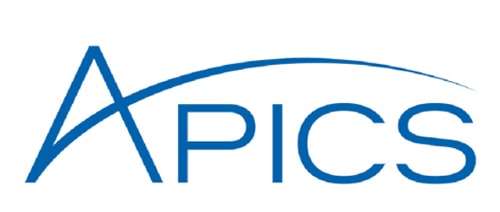Home /
Academics /
Academic Programs by Campus /
Providence Programs /
Operations and Supply Chain Management (B.S.B.A.)
Operations and Supply Chain Management B.S.B.A.
In this section



Program Overview
From point A to point B, from beginning to end, from origin to destination — a lot of things happen in order for us to enjoy the goods and services we use every day.
Operations and Supply Chain Management brings together the best creative minds, producers and sellers to collaborate and develop the most efficient flow of goods so businesses can thrive. The need for experienced, well-educated operations and supply chain managers has never been greater.
In this program, you’ll learn to manage materials, information and finances through the supply chain of manufacturers, wholesalers, retailers and consumers. Plus, you’ll benefit from a diverse analytical curriculum with business and general education coursework while also completing your business administration degree.
You’ll systematically and strategically coordinate operations and supply chain processes within and among companies, and develop a total-systems view that will optimize efficiency, conserve resources and satisfy customers.
Faculty with industry experience will bring you inside this dynamic field, teaching you operations and continuity, logistics, process improvement, accounting, microeconomics and other business subjects. You’ll also have the opportunity to pursue an internship in your field of interest to build your résumé and make industry connections.
Sample Operations and Supply Chain Management Courses
-
Process and Quality Management
-
Procurement
-
Logistics
-
Enterprise Risk Management
-
Organizational Behaviors
-
Global Strategy Capstone
In addition to classes, free elective credit can be applied to a number of options such as Directed Experiential Education (DEE), internship, minor or study abroad. You are encouraged to contact an advisor before scheduling free elective credits.
View the complete catalog listing:
Operations and Supply Chain Management
Professional Networking

Recognized as an Outstanding Student Chapter, after receiving the 2019 APICS Chapter Excellence Awards, the JWU APICS Chapter is a professional organization for students at Johnson & Wales University’s Providence Campus. Students discover operations, supply chain management, and much more through hands-on experiences such as guest speakers and facility tours.
Career Possibilities
Some professions may require additional study, background checks, certifications, licenses, exams and/or experience as required qualifications for employment. Students are responsible for verifying that they can meet the employment requirements of potential employers.
-
Transportation Manager
-
Purchasing Agent
-
Logistics Manager
-
Distribution Specialist
-
Operations Manager
-
Supply Chain Analyst
Featured Faculty

Associate Professor
Isaac Damoah is an associate professor of management at JWU Providence. Prior to joining JWU, he held lectureships, professorships, and principal positions in various colleges and universities, as well as project management consultancy services in the UK and US for over 16 years.

Dean, College of Business
As dean of JWU’s College of Business, Mary Meixell, Ph.D., supports the faculty in their thought leadership and societal impact, and the students in their programs of study as they progress towards rewarding careers.

Associate Professor
Associate Professor Nancy Tourani is a researcher and teacher with an expertise in strategy and strategic alliances. She has also published three book chapters on ontological and quantum storytelling.
Faculty Contact
Stephen Pyle
Interim Department Chair
Department of Management, College of Business
401-598-5121
Email
Banner photos courtesy of Andreas Dittberner, Denys Nevozhai and Mauricio Gutiérrez on Unsplash.
